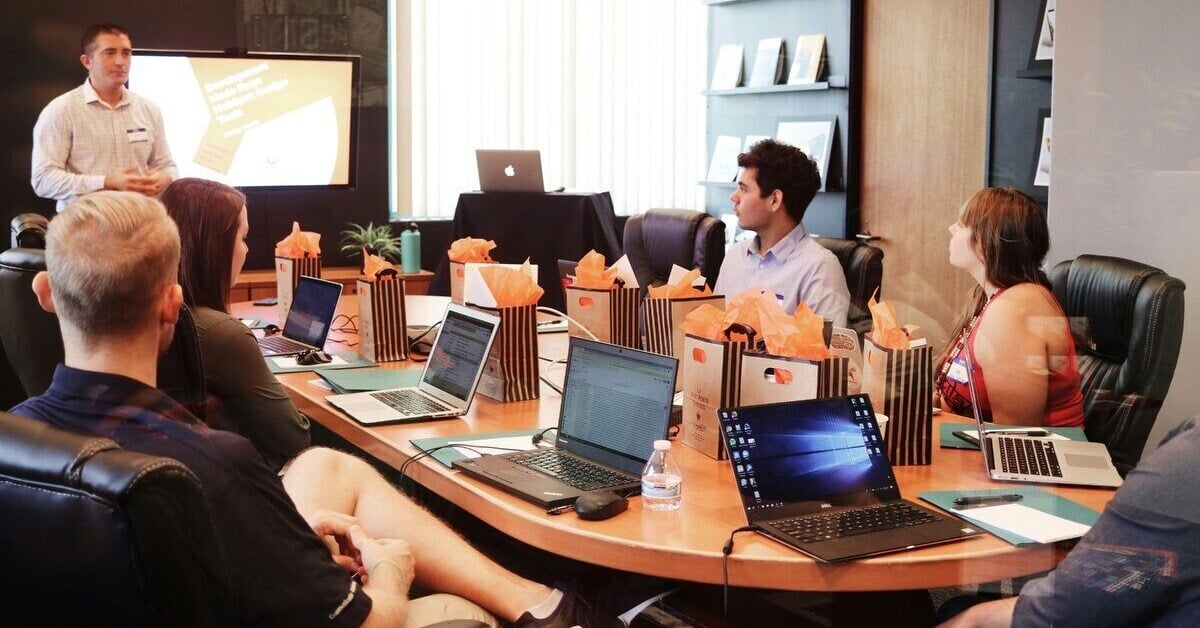How to transform your talent strategy with skills intelligence

An organization doesn’t just need dedicated employees – it needs skill sets. By building strong, measurable skills within a company, you can foster adaptability and long-term growth.
Traditional approaches to skill development – those tied to roles and hierarchies - are evolving. An alternative approach that is skills-centered, rather than role-based, is being increasingly embraced. Many companies are finding that a skills-based approach enhances agility and preserves competitiveness and drives business success.
With this shift toward a skills-based talent strategy, it’s important for companies to know about a new concept called “skills intelligence.” This eBook, co-created with Brandon Hall Group™, examines how skills intelligence can revolutionize your talent strategy while driving real business impact.
Why skill-based talent strategies are the future
The traditional focus on job roles is declining, especially with the rise of AI and automation. If they want to stay ahead, what businesses need to focus on instead is developing employees with adaptable skill sets.
Specifically, companies can focus on power skills: emotional intelligence, critical thinking, decision-making, and effective communication. Not only are these skills the most useful for business growth and efficiency, they are less likely to be automated or replaced with technological advancements.
Cross-functional skills like these make employees resilient towards new challenges. Emphasis on measuring and building these abilities helps companies retain, engage, and develop thousands of team members each year.
Leveraging skills intelligence for business impact
Skills intelligence refers to the ability to measure, track, and improve specific skills. By collecting “intelligent” data on employee skills, you’ll be able to make better decisions. Skills intelligence equips leaders to orient their workforce toward long-term business objectives.
Studies by Brandon Hall Group™ indicate that too many companies are not building and nurturing the skills that will serve them in the future. By embracing the power of skills intelligence, companies can measurably achieve the following:
- Building stronger, future-ready talent pipelines
- Increasing workforce flexibility
- Better learning initiatives and leadership development
- Supporting stronger diversity and inclusion outcomes
- Boosting employee engagement and retention
- And much more…
How skills intelligence elevates your workforce
A great team is only as good as its skill sets. If you can leverage data analytics to identify where you’re lacking – or where you’re exceeding – your entire workforce can adapt quickly.
This way, leaders can make smart decisions about hiring, upskilling, and workforce planning, with employees who have the right skills to support the initiatives.
Long-term success: creating an organization of highly-skilled employees
To increase revenue, mitigate risk, and decrease business costs… You must be able to track your chosen employee skills. This leads to long-term success in an organization, rather than simply ticking off “corporate training” from your to-do list.
By using technology like immersive simulations, you can collect intelligent skills data on each employee, department, or cohort of team members. This allows you to create long-term, consistent feedback for each person in the organization – with real data to back up your plans.
Measuring the skills that matter
Most companies put employees through regular corporate training, without any measurement or assessment! This makes the training useless to the leadership team. They can’t determine what is working and what isn’t – or if the training was worth the investment.
To become a skills-based organization, you can use immersive simulations to perform skill assessments with your employees. This gives your organization a benchmark on what to improve.
Verifying skills proficiency: the missing link in talent development
More research carried out by Brandon Hall Group™ shows that only a few organizations measure how well employees apply newly acquired skills. Isn’t this surprising? Many companies spend millions on training and development, without data to back up that investment.
Now, smart companies are using AI and immersive simulations to synthesize and analyze skills data. These technologies introduce objectivity in assessing an employee’s skill level, instead of relying solely on subjective performance reviews or generalized assessments of a department.
Key takeaways to building a future-proof workforce
Implementing a skills-based talent strategy may require you to make a big change, but it pays for itself in the long run. If your organization can develop a strong framework for collecting and using skills intelligence and skills data, growth becomes much more reliable.
Here are some great ways to begin:
- Start small, scale thoughtfully: Skills intelligence is complex, so start small and expand, maybe beginning with just one project or initiative.
- Prioritize personalized learning: Tailor skill development programs to the specific needs of each employee to better ensure the business impact.
- Empower your workforce: Encourage employees to spend time learning and enhancing their skill sets – even if that means soft skill sets like communication.
- Measure better with technology: Leverage AI and emerging technology (like immersive simulations) to measure skills in real time.
- Break down organizational silos: Encourage teamwork across silos and build a cross-functional approach to developing skills throughout the organization.
Ready to future-proof your company? Build skills the right way
This is just the beginning. If you want to learn more about skills intelligence, skills data, and immersive simulations... Download the complete eBook and create a skills-based talent strategy aligned with your long-term business objectives.

